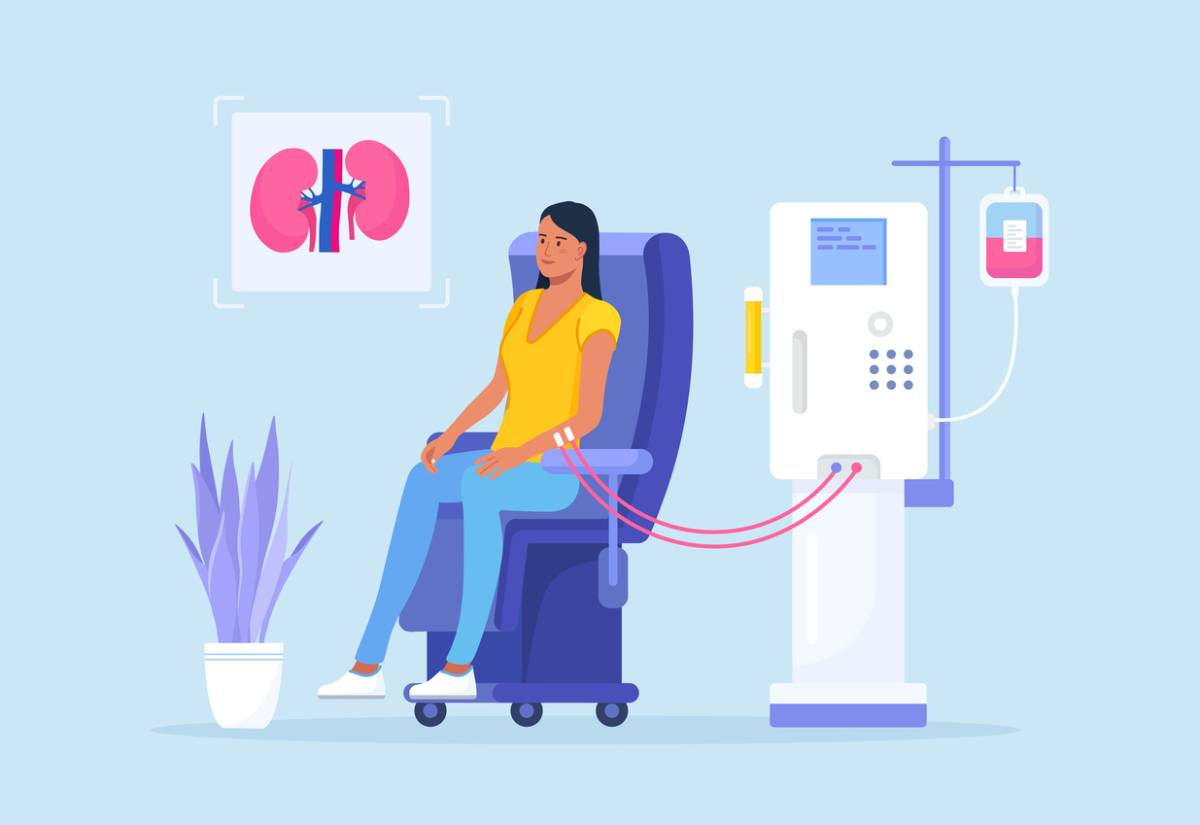Dialysis is a treatment that’s meant for people with failing kidneys. Your kidneys can’t filter your blood properly if you have kidney disease. This causes your blood to become increasingly clogged with waste and toxicity, creating illness as time goes on. Dialysis is a procedure that removes excess fluid and waste products from your bloodstream.
What is Dialysis and Do I Need It?
If you are like many of our patients, you are probably wondering, “What is dialysis, and do I need it?” This is a big procedure and there are many steps involved, so you’ll want to stay connected with your doctor throughout the entire process. Below, our kidney specialist in Los Angeles will explain what dialysis is and what you can expect with kidney failure, and whether or not dialysis is for you.
About Dialysis
Dialysis is a procedure that replaces healthy kidneys. Dialysis is required when your kidneys are unable to provide the necessary care. Dialysis can take place in a hospital or in a dialysis unit not affiliated with a hospital. It also can be performed at home. Your medical needs and wishes will determine which location is best for you and your doctor.
There are many types of dialysis available. Your doctor will recommend one based on your current needs:
Peritoneal Dialysis
Your blood is cleaned inside your body. To absorb blood waste that has passed through the small vessels of your abdomen cavity, a special fluid is placed in your abdomen. The fluid is then drained. This is a common type of dialysis that’s done at home.
Hemodialysis
The outside filter filters your blood and cleans it before returning it to you. This can be done at a dialysis center or at your home.
Do I Need Dialysis?
You may need dialysis or a transplant if your kidney disease progresses to the point that there is no function in the body. Dialysis is usually initiated when symptoms or lab tests reveal toxic levels of waste in the blood. nausea and fatigue are some of the symptoms. Also, you may experience swelling and vomiting.
The time you need to start dialysis will depend on your age, energy levels, overall health, laboratory test results, and willingness to follow a treatment plan. It can improve your quality of life and make you live longer. However, it takes a lot more time.
How to Prepare for Dialysis
Your dialysis specialist will discuss all of the dialysis options available to you. While some patients can use at-home dialysis while others need to be admitted to a center with the appropriate equipment, others might require treatment by a specialist. Your doctor can discuss your comfort level and needs. Friends and family should be involved in the decision-making process. This will allow you to build a support network around you during times of need.
Before dialysis can start, it is necessary to connect the machine to an artery in your body. This vital vascular surgery must be completed before your dialysis starts. An AV Fistula procedure is the most common. It connects your body’s artery to a vein for dialysis. A nurse will place two needles in the AV Fistula to initiate dialysis.
Contact Your Dialysis Specialist Today!
It’s important to listen to your body’s signs and signals when you are dealing with kidney problems. Depending on your level of symptoms, you might need to think about starting dialysis soon. Dialysis can be difficult for someone with kidney disease, but it is a treatment that will support your overall health and well-being. You have many options to help you make an informed decision about your treatment. For any questions or concerns regarding dialysis, contact your trusted kidney dialysis specialist in Los Angeles today. We look forward to scheduling a personal consultation with you!

